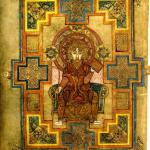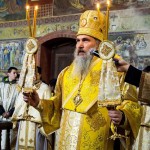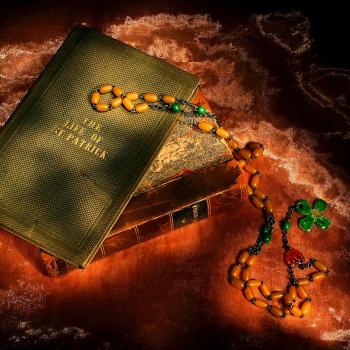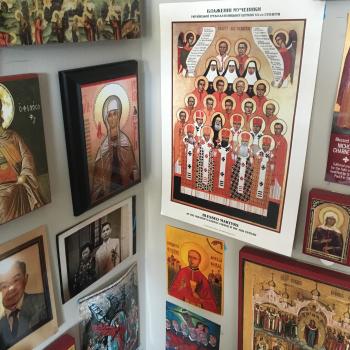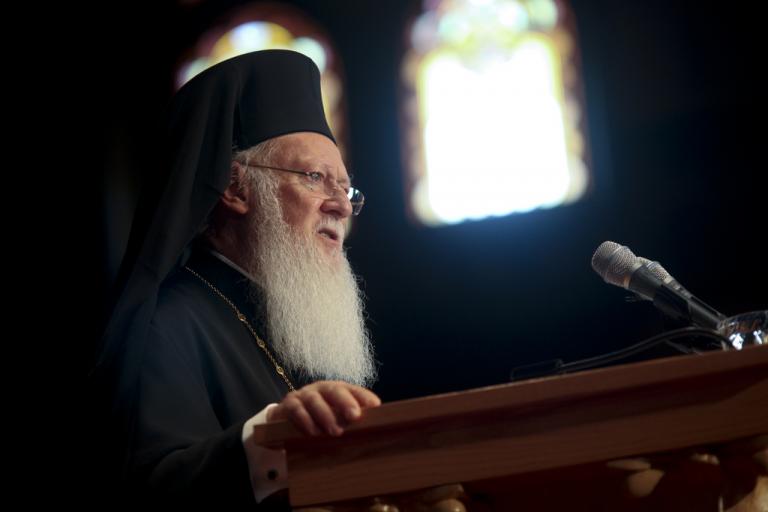
I began reading about Ukrainian autocephaly when I was a neophyte. I remember well when Archbishop Job of Telmessos gave a fascinating interview to the Religious Information Service of Ukraine on the subject. New as I was to the Greek-Catholic Church of Kyiv, I wrote a post, intending to take ‘public notes’ on it. Some of the more intriguing points he made concerned why it was that the Tomos could only be given by Constantinople, how it was that Moscow’s claim to be ‘Third Rome’ is more ideology than ecclesiology, and how it could be demonstrated from the granting of autocephaly to Poland that Kyiv was the canonical territory of the Ecumenical Patriarchate. I wrote and posted, and it was shared on an Orthodox group where I was soundly ridiculed for being a uniate, and then there was a Byzantine blog (the one from Texas, as I recall) that wrote a post to say that there was ‘no way that Archbishop Job said that.’ On the Eastern Catholic social media groups, lament was more the order of the day, with some saying that it would be a sorry moment when neophytes would be allowed to ‘opine’ on politics. I, of course, felt terrible about the whole thing, especially because I had cited Sister Vassa Larin on the concept of canons and Nicholas Denisenko on how the Kyivan churches were colonized by the ‘Russian World’ ideology. Wanting to save people I considered my colleagues in academia from hate mail, I consulted wise people in my church about whether I should delete the post. They replied first that the scholars were established people who could take care of themselves, so there was no need for a baby scholar like me to take care of them, and what was more, it was as if I were like the kid in the Hans Christian Andersen story who pointed out that the emperor had no clothes on. Of course there was that reaction. Might, the Orthodox and those associated with them have been cynically trained to think, makes right, and as a new convert, I had simply read one interview – not even the primary source documents where these claims can be demonstrated – and had seen through the charade.
That was two years ago. I could say that with today’s announcement I am vindicated, but that would be petty and trite, not that I, a sinner, am not any of those things. The glory, however, does not go to me, or to Ukraine, or to her heroes, but to those who can read, because those of us who say Glory to Jesus Christ glorify the Logos who became flesh and dwelt among us and has exegeted the Father, making exegesis the way by which God is glorified forever. Recently, someone from the Moscow Patriarchate told me that one’s perspective on Ukrainian autocephaly depended on one’s ecclesial location. If one were Russian, he said, one would be opposed to it and think that Ukraine belongs to Moscow. Then he said that I was for it because I was a uniate and was under Rome, which seems to be a common delusion shared by my friends associated with both Rome and Moscow. I told him to knock it off with the postmodernism. The relevant patriarch, as far as my position is concerned, is not the Bishop of Rome, but the Ecumenical Patriarch, with whom my church is sadly not yet in communion. That Kyiv is under Constantinople is not a matter of perspective, but of documentation. That Greek Catholics celebrate this recognition of freedom with the rest of the children of the Holy Equals-to-the-Apostles Volodymyr and Olha does not signal that autocephaly is part of a grand uniate plot to cut off the Kyivan Church from canonical Orthodoxy and latinize her, but because we also recognize that we too are a free people in a church that has the full rights and dignities of a patriarchate and, in the words of our Patriarch, need no one’s permission to exist.
Today’s announcement, however, is beyond wonderful. Not only does it tell us that I was not crazy to have read what I read two years ago, but it also confirms that Orthodoxy really does refer to Orthodoxy. It is emphasized that the canonical regularization for the primates of the Kyiv Patriarchate and the Ukrainian Autocephalous Orthodox Church have been removed because the schisms are not ‘dogmatic.’ So long have we all been gaslit into thinking that ‘canonical Orthodoxy’ refers to territory. It does not. It refers, if you will, to dogma. Dogmatically, the daughters and sons of Holy Volodymyr and Olha are Orthodox. We believe in the Creed and do not understand why the Latins say we deleted the filioque. We profess the same Trinity. We are protected by the same Protecting Mantle, and under the Oranta of Kyiv, the Immovable Wall, do we stand, counting on her to keep her hands upraised so that the city will not be taken. We are, in a word, Orthodox. We share the same faith. It makes sense to get back together.
Of course, today’s announcement has nothing to do with my church. The Bishop of Rome asked our Patriarch recently if it did, and he responded that it was an ‘intra-Orthodox’ concern, not much to do with Greek Catholics, except we certainly support any effort for the reunion of the Kyivan children of the Holy Equals-to-the-Apostles. He is right. We are not the Kyiv Patriarchate, the Autocephalous Orthodox Church, the Moscow Patriarchate, or even the Ecumenical Patriarchate, although it is the work of one of our bishops, Borys Gudziak, that has been one of the scholarly lynchpins establishing that Kyiv is Constantinopolitan territory. It was probably because of us, though, that Constantinople granted Moscow at one point the ability to ordain the Metropolitan of Kyiv. That was because in 1598, the Metropolitan of Kyiv — the Orthodox one — with all of his bishops, except the ones in Galicia, signed a union with Rome at Brest-Litovsk, which is hilarious because the Union of Brest is often seen as a Galician plot. Today, Constantinople revokes that right. It was given as a point of oikonomia, and it has been rescinded in this new situation in which the realization has come to fruition that the local Church of Kyiv, divided as it has been in the confusion among the imperial centers of Christianity for centuries, is self-heading.
One of the great points in today’s announcement is then that there is no need for violence in light of the granting of the Tomos. This is the truest part of it. There is no need to be violent because might does not make right, territoriality is not the basis of Orthodoxy, and oikonomia presumes nomos. Here, perhaps, is where my church, the Greek-Catholic one, is relevant. We too have a document. It is called the Union of Brest. In it, we discover terms that are more generous to us than the other one from the fifteenth century, the one from Florence over which Moscow originally broke communion with Constantinople by imprisoning the Metropolitan of Kyiv who proclaimed that union, Isidore. It says that we don’t do the filioque, we don’t know what purgatory is, and we are not sure why the Western Churches have an Easter fire, but we are also going ahead of our other Orthodox sisters and brothers in re-establishing communion with Rome and hope that it won’t be held against us. Since 1598, it has been held against us every time the word unia comes out of the mouth of an Orthodox-not-in-communion-with-Rome, but our people have died for the union, from Holy Josaphat of Polotsk to the New-Martyrs murdered by the Nazis and the Soviets in the twentieth-century.
But this union is also based on documentation. The terms are not that we get latinized. The basis is that we stay Orthodox while in communion with Rome. We too remain the children of the Holy Equals-to-the-Apostles Volodymyr and Olha and therefore celebrate this day with our sisters and brothers. It is, in other words, no one’s plot, except in the imaginations of conspiracy theorists, to sell anyone out to Rome. It is our open agenda to seek the unity of our local church and to avoid the colonizations known as uniatism, the inferiority complex that comes of ecclesial colonialism, whether by Rome or Constantinople or Moscow. Autocephaly, in other words, is the antidote to uniatism. It says in writing that no one needs to give any church in Ukraine permission to exist. It turns out, in short, that the Orthodox way, which includes the Greek Catholic way, is to read what is written. It is not the case, we learn, that Orthodoxy means the abandonment of our capacity for exegesis and a belief in legends, superstitions, and what a former friend of mine in the Moscow Patriarchate said that his spiritual father called the ‘Holy Trinity’ of Russia, Ukraine, and Belarus. I have shared that last story with a number of friends. We often wonder what is so holy, trinitarian, or Orthodox about that formulation.
In short, today’s announcement is vindication for everyone who prefers to read instead of believing conspiracy theories and old wives’ tales. We must continue to pray that what continues is this ecclesial form of rule of law, instead of the ideological threats that characterize an authoritarian exercise of rule by law. Insofar as today is a victory against authoritarianism by oikonomia, we celebrate. No longer do we have to take seriously the idle threats of those who gaslight us who read and demand that we entertain their fictional realities. Christ is among us. He is and will be.

